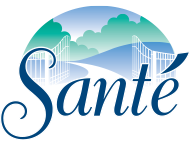Some people believe that they can overcome addiction without the help of a detox program. Often, this comes from a feeling of wanting to “own” the problem and deal with it in order to gain power over the addiction. Unfortunately, this frequently doesn’t work. It’s not because people are weak but rather because addiction is so strong. After individuals try and subsequently fail, it becomes clearer that they can’t do this independently. In fact, they need professional detox help.
However, the thought of admitting defeat and the uncertainty of what will happen next tends to make them hesitate. As you should know, hesitating doesn’t help the situation. In many cases, a delay in treatment simply brings multiple opportunities for the addiction to worsen.
The first step in recovery is to get into a medical detox program. Therefore, it’s wise to learn more about addiction detox services in order to settle your nerves and be prepared for what’s ahead.
What Is a Detox Program?
All individuals have a unique experience in medical detox because their bodies don’t respond the same. The reason is that they use various drugs in different amounts and with different frequencies. They may also have used drugs or alcohol for varying lengths of time. Because of that, the detox process can take anywhere from a week to a month. Regardless of the precautions involved, a detox program follows three main steps.
1. Medical Assessment
Addiction takes a toll on the body, no matter how healthy people are when they start using drugs. When they begin treatment with detox, the medical team needs to know the extent of the problem. The team learns more through blood tests and a complete mental and physical assessment. New clients also undergo withdrawal risk assessments, co-occurring disorder screenings, and social exams.
The information that these tests provide helps the detox staff plans an effective and safe course of treatment. The doctors and nurses can better determine the most effective approach to get clients through withdrawal safely.
2. Withdrawal
Putting the treatment plan into action is the next step. The medical detox staff helps clients through withdrawal symptoms, keeping them stable and safe to avoid potential complications. This step involves providing a proper diet, medications, and other treatments.
Proper nutrition is essential throughout the detox process. Many people with an addiction have mineral and vitamin deficiencies that serve to hinder their recovery. Eating the right foods and taking supplements to correct those deficiencies helps their bodies heal.
The medications that clients receive vary depending on their specific drug addiction and withdrawal symptoms. A lot of clients, however, receive anti-nausea meds, nonaddictive pain relievers, and sleep aids.
Alongside these medicines, doctors often prescribe drugs that treat specific drug addictions. For instance, clonidine, naloxone, and naltrexone are useful for treating opiate and opioid addictions. Benzodiazepines such as Valium and Librium can help treat alcohol and cocaine addictions. These medicines work by reducing the physical withdrawal symptoms.
In addition to these treatments, facilities often provide holistic care. These methods aim to reduce stress and improve balance so that clients can focus better on recovery. Examples include exercise and creative arts.
3. Rehab Preparation
When the withdrawal symptoms subside, and clients are stable, the detox process ends with preparation for rehab. Clients often feel better and think more clearly after detox, but it’s only the beginning of addiction recovery treatment. They need a full spectrum of care that includes therapy and aftercare, too.
Rehab facilities offer individual, family, and group therapy to address underlying issues, negative thinking, and relapse prevention techniques. Along with smoothing the transition, this early therapy helps clients establish a foundation for the rest of their treatment. They can begin developing life skills, relapse prevention strategies, and coping techniques.
Find the Right Detox Program at Santé Center for Healing
Have you decided to get help for your addiction? Santé Center for Healing understands the courage it takes to make this kind of decision. When you come to us for treatment, we explain the treatment process beforehand. Then, we collaborate on your treatment plan and then your progress.
Santé Center for Healing begins by conducting a three-day evaluation so that we can get to know you. Our goal is to provide the best possible care for your health. We offer several detox services, including:
- Alcohol Detox
- Heroin detox
- Medical detox
After the detox process, we can move you directly into residential treatment to continue your recovery journey. Throughout rehab, we provide research-based treatment methods and alternative therapies. We vary your schedule to encourage your engagement in recovery and give you the support you need. Our facility also offers an intensive outpatient program and transitional living to help you transition into a sober life at home.
Don’t let drugs control your behavior and lead your life to ruin. Ask Santé Center for Healing for help to reclaim the control. Reach out to us at 866-238-3154 to find out more about how we can help you out of addiction, starting with the detox process.

